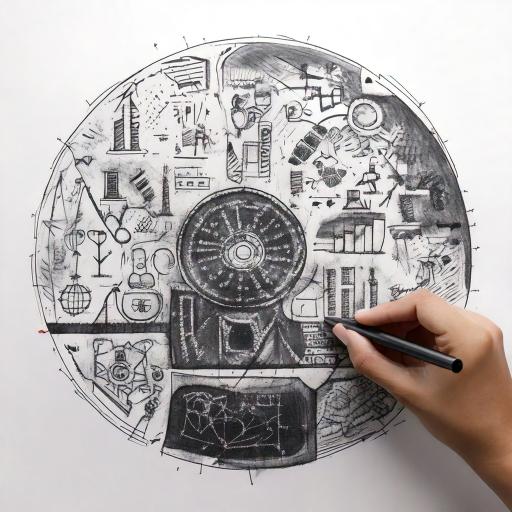Tag: All
-

The Talent vs. Effort Debate
Why Persistence Beats Natural Talent: A Neuroscientific Perspective on Learning. For centuries, people have debated the roles of talent and effort in success. Is genius innate, or is it developed? Are some people simply born with abilities the rest of us can never attain, or is expertise within reach through dedication and persistence?While it’s undeniable that…
-

Learning faster
Want to Learn Faster? Teach Someone Else! The Surprising Way Teaching Others Helps You Learn. Have you ever noticed that explaining something to someone else makes you understand it better yourself? Maybe you’ve helped a friend with a tricky subject and suddenly realized you grasp it more clearly than before. This isn’t just a coincidence—it’s backed by…
-

Part 3: New Leadership Skills
Emerging Skills – New Competencies for the Future. The future of leadership is taking shape in an environment marked by unprecedented technological advancements, societal shifts, and complex global challenges. To thrive, leaders must move beyond timeless and evolving skills to embrace entirely new competencies. These emerging skills—Ethical Foresight, Agile Leadership, Deep Work, and Empathy-Driven Innovation—represent the…
-

Part 2: Evolving Leadership Skills
Timeless Qualities with New Applications. Leadership is a dynamic art—constantly evolving to meet the demands of a rapidly changing world. In this series, we explore how leaders can future-proof their skills to navigate an era of unprecedented change. While foundational leadership qualities—such as effective communication, adaptability, and strategic thinking—remain vital, the contexts in which they are…
-

Future Leadership Skills Series
Skills for the Decade Ahead. The next decade will usher in profound changes that demand a reimagining of leadership. Technological advancements such as artificial intelligence (AI), increasing global interconnectedness, and a pressing need for sustainability and ethical accountability will redefine how leaders operate. The challenges ahead will require leaders to balance timeless principles with innovative…
-

Mindset #6: Relationship Building
The Path to Operational Excellence: Bringing the Mindset Shifts Together. In this series, we’ve explored the mindset shifts necessary for leaders to drive operational excellence. Each shift challenges traditional views on training and development, emphasising the need to prioritise continuous learning, system improvements, and relationship-building. Let’s revisit each mindset shift and then dive deeper into the…
-

Mindset #5: Analysing the system
From Blaming Employees to Analysing the System. When employees fail to meet expectations, it’s easy for leaders to assume the problem lies with the employee’s motivation or effort. This assumption, however, overlooks the bigger picture: organisational systems, processes, and leadership support often play a significant role in employee performance. In this next article in our series…
-

Mindset #4: Continuous Learning
From One-Time Training to Continuous Development. In our previous article, we discussed the critical importance of moving from implicit expectations to clear, documented standards. While establishing clear standards sets the foundation for success, there’s another mindset shift that leaders must embrace for true operational excellence: the transition from one-time training to continuous development.Many leaders mistakenly…
-

Mindset #3: Setting Clear Standards
How Clear Standards Drive Performance Many leaders believe that once employees complete training or have been in a role for some time, they should instinctively understand what is expected of them. This assumption can lead to serious gaps in performance and development. Without clear, documented standards and regular feedback, employees often find themselves navigating a fog…
-

Mindset #2: Leader-Ownership
From Delegating Development to Owning ItThis is the second article in our leadership series, focusing on shifting your mindset from delegating team development to owning it. In the previous article, we discussed the importance of moving from a reactive to a proactive approach in developing people. Today, we’ll delve into how personal involvement in team…
